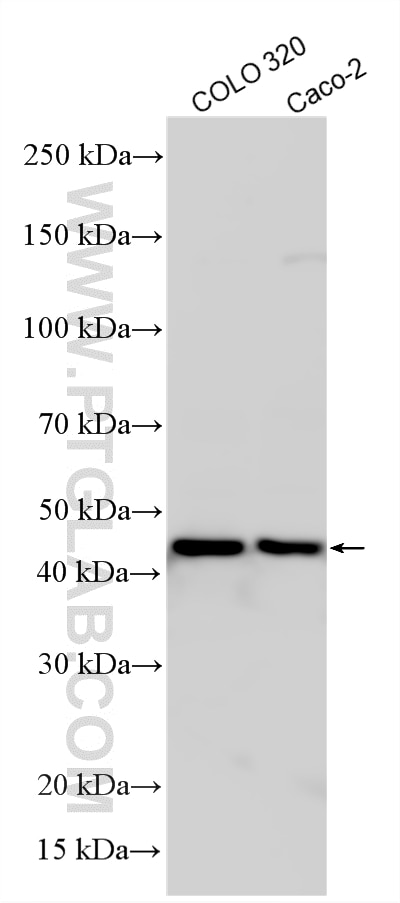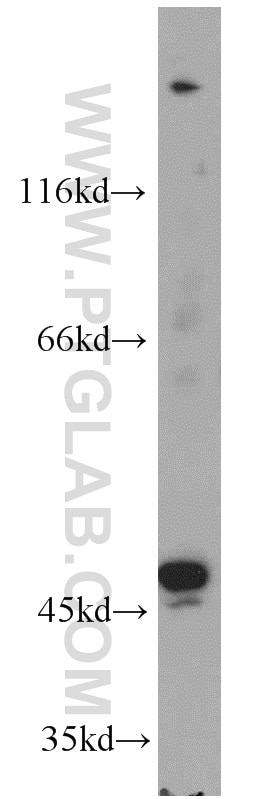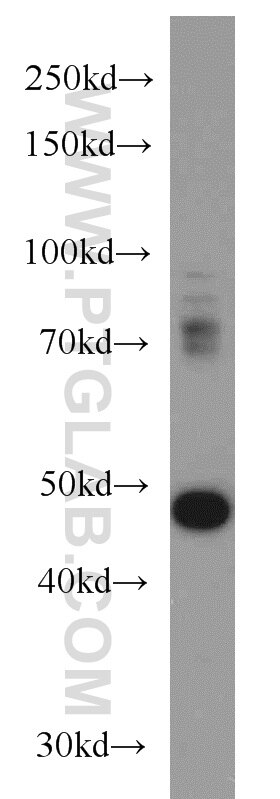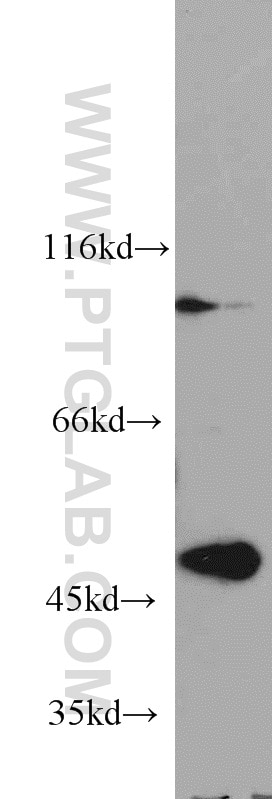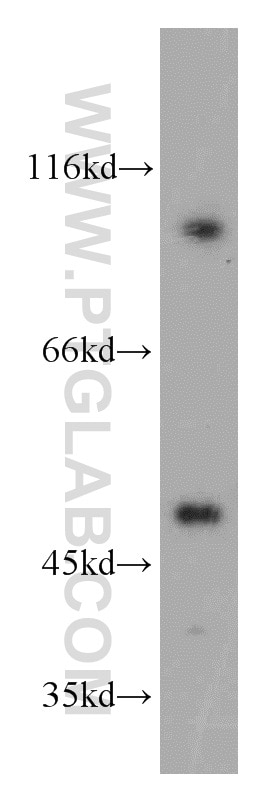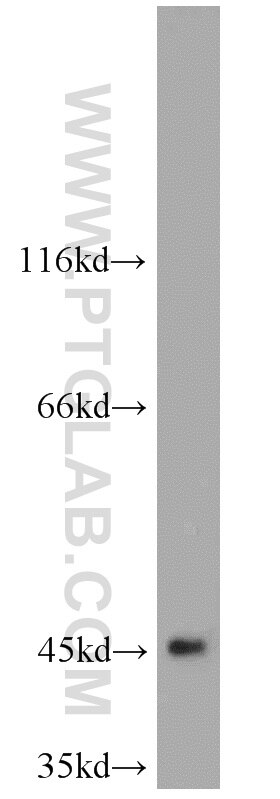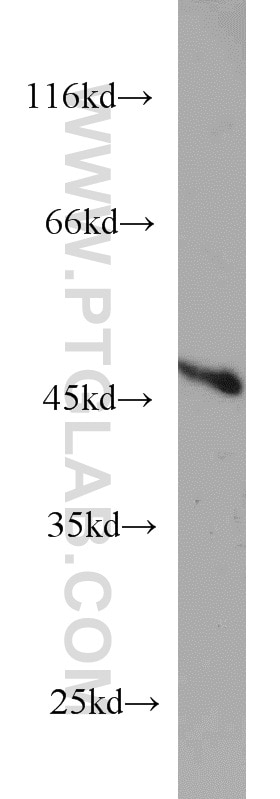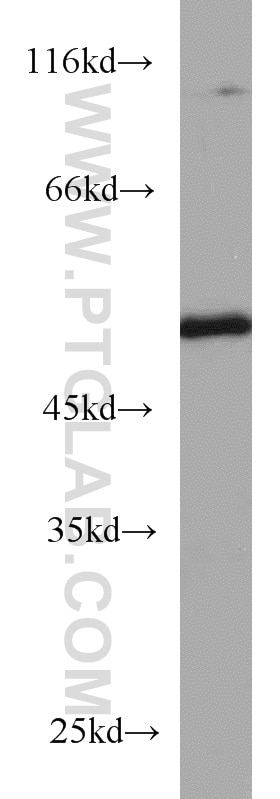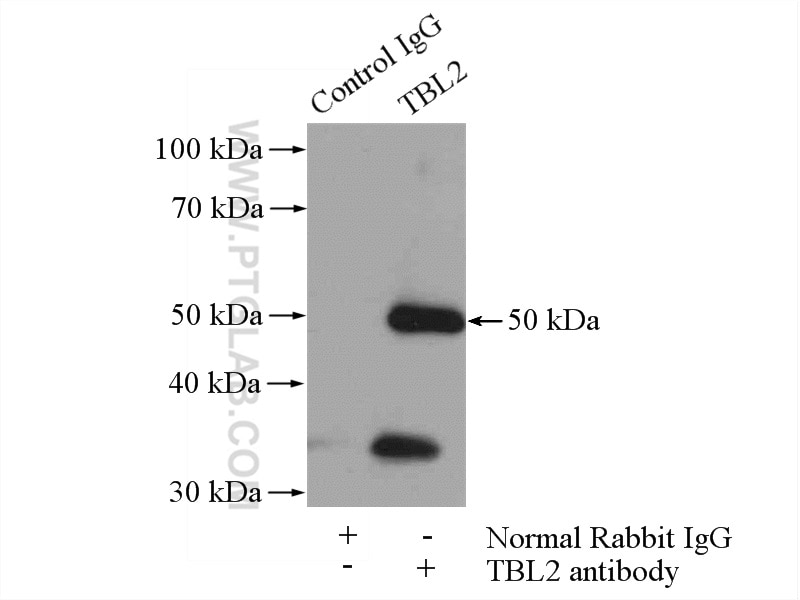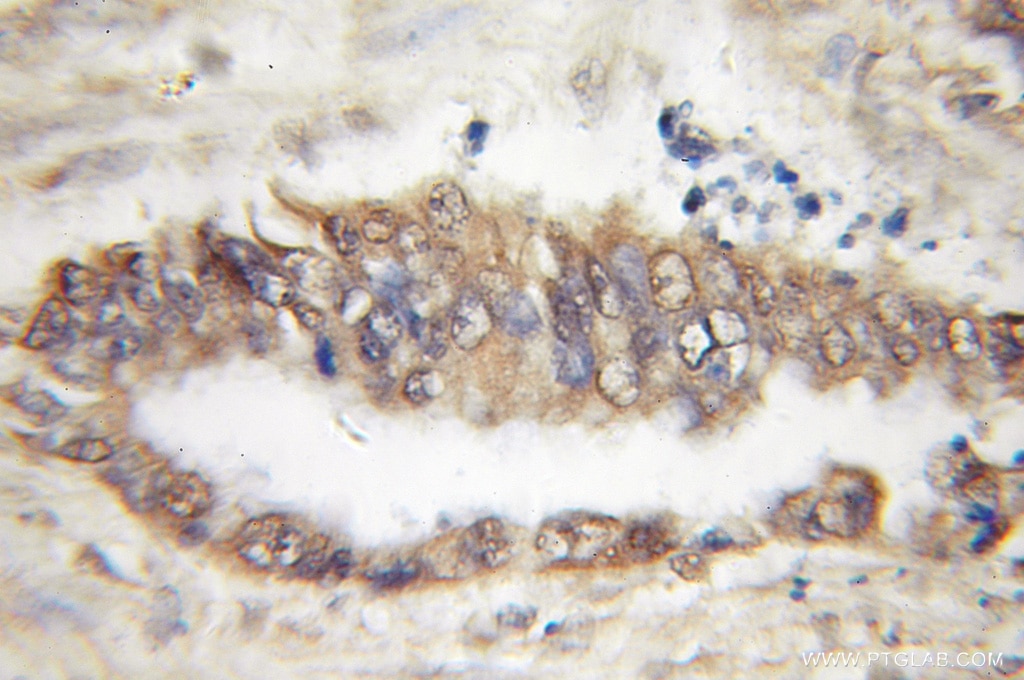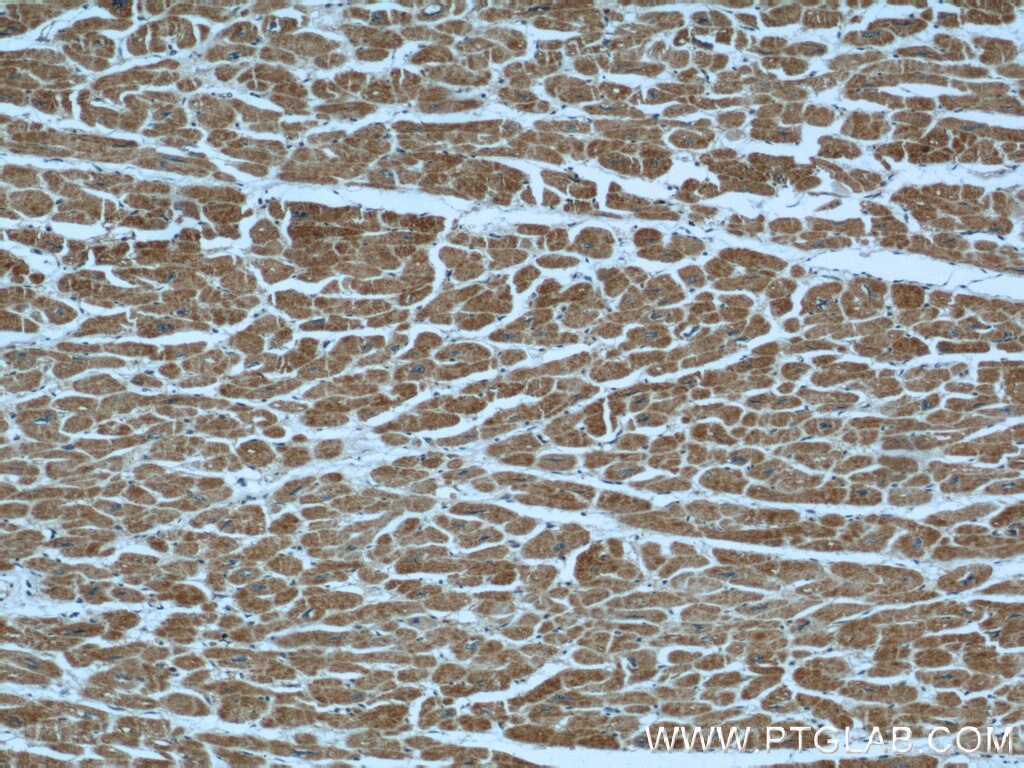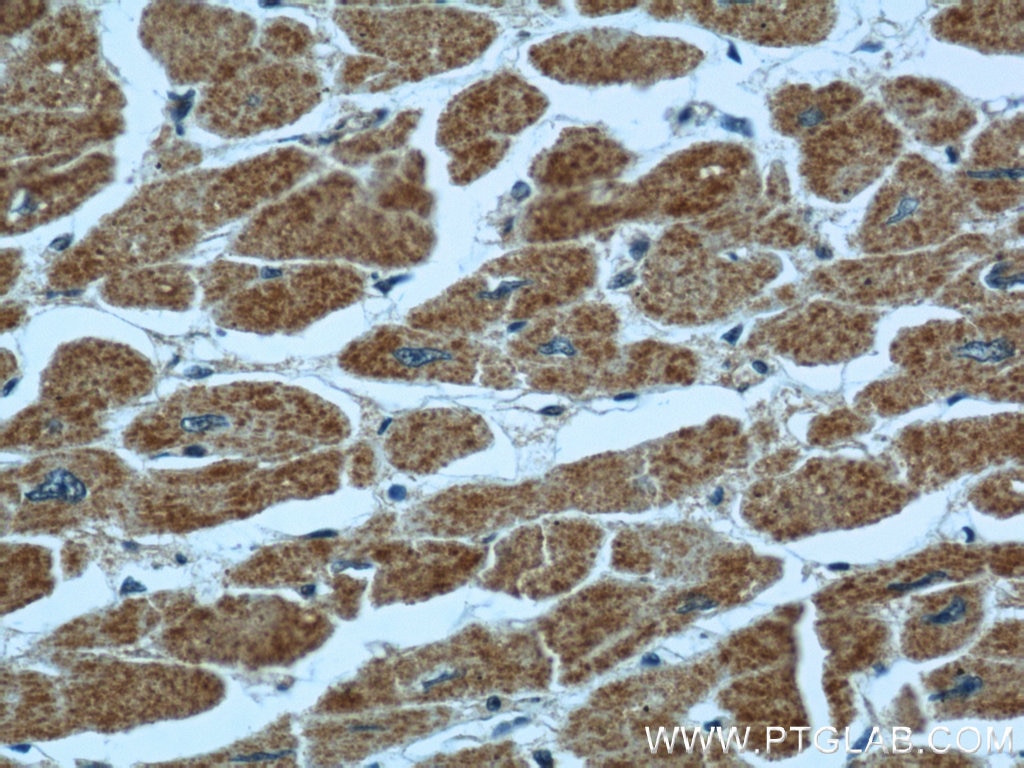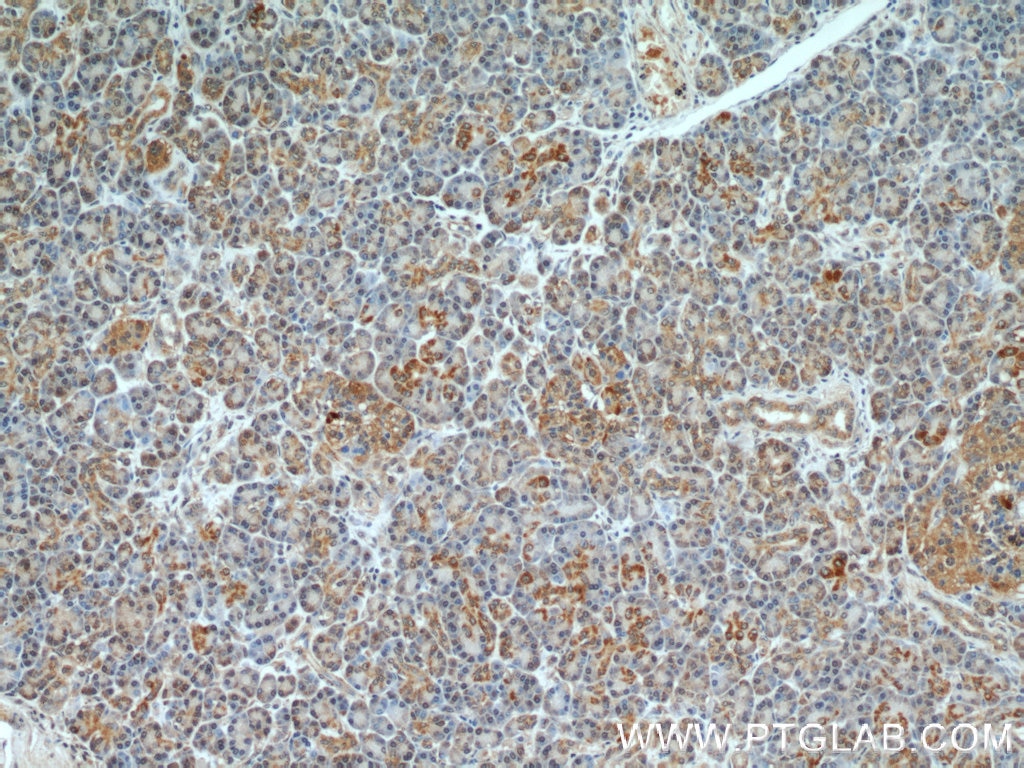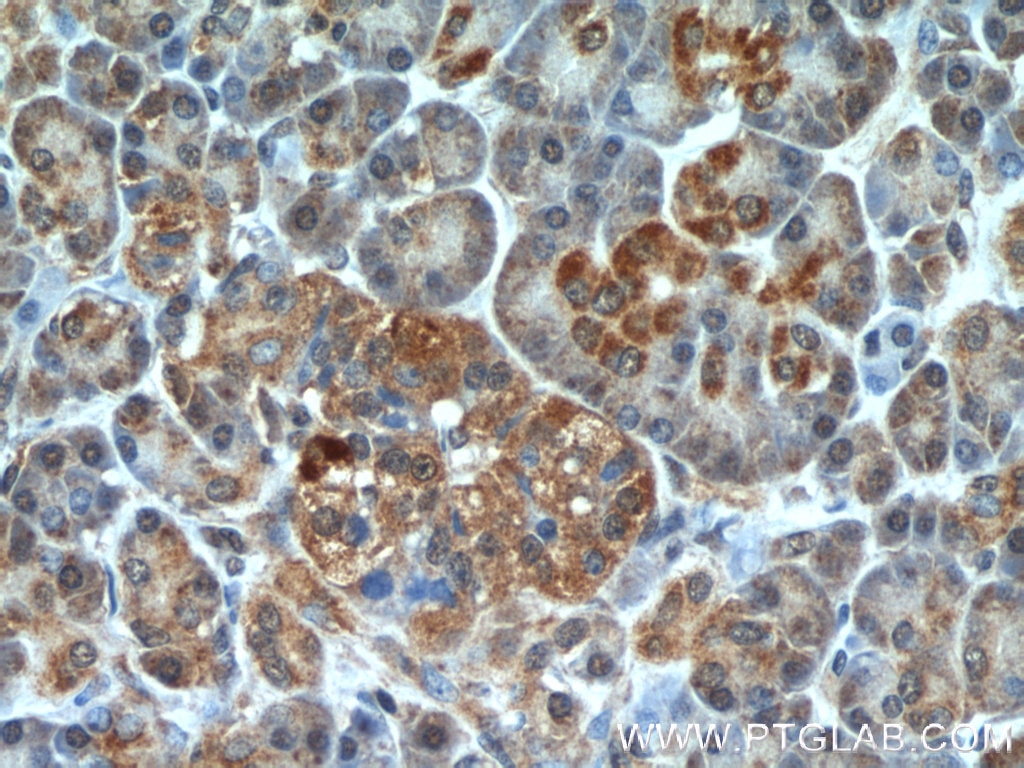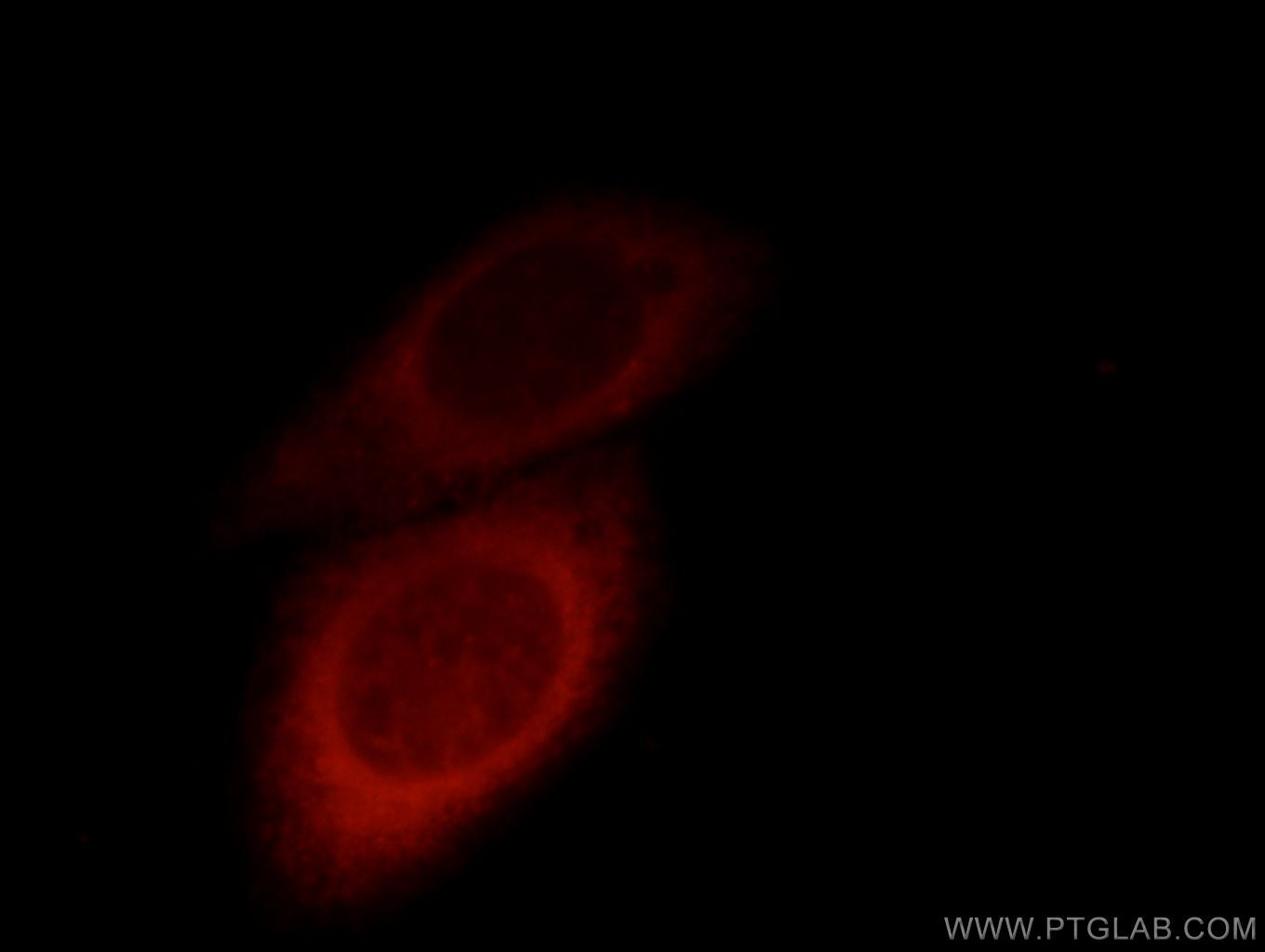Validation Data Gallery
Tested Applications
| Positive WB detected in | COLO 320 cells, HeLa cells, human placenta tissue, Jurkat cells, mouse pancreas tissue, mouse placenta tissue, Caco-2 cells |
| Positive IP detected in | COLO 320 cells |
| Positive IHC detected in | human pancreas cancer tissue, human heart tissue, human pancreas tissue Note: suggested antigen retrieval with TE buffer pH 9.0; (*) Alternatively, antigen retrieval may be performed with citrate buffer pH 6.0 |
| Positive IF/ICC detected in | HepG2 cells |
Recommended dilution
| Application | Dilution |
|---|---|
| Western Blot (WB) | WB : 1:1000-1:4000 |
| Immunoprecipitation (IP) | IP : 0.5-4.0 ug for 1.0-3.0 mg of total protein lysate |
| Immunohistochemistry (IHC) | IHC : 1:20-1:200 |
| Immunofluorescence (IF)/ICC | IF/ICC : 1:10-1:100 |
| It is recommended that this reagent should be titrated in each testing system to obtain optimal results. | |
| Sample-dependent, Check data in validation data gallery. | |
Published Applications
| KD/KO | See 2 publications below |
| WB | See 6 publications below |
| IHC | See 2 publications below |
| IF | See 3 publications below |
Product Information
12488-1-AP targets TBL2 in WB, IHC, IF/ICC, IP, ELISA applications and shows reactivity with human, mouse samples.
| Tested Reactivity | human, mouse |
| Cited Reactivity | human |
| Host / Isotype | Rabbit / IgG |
| Class | Polyclonal |
| Type | Antibody |
| Immunogen |
CatNo: Ag3200 Product name: Recombinant human TBL2 protein Source: e coli.-derived, PGEX-4T Tag: GST Domain: 100-446 aa of BC012938 Sequence: SNGKYLATCADDRTIRIWSTKDFLQREHRSMRANVELDHATLVRFSPDCRAFIVWLANGDTLRVFKMTKREDGGYTFTATPEDFPKKHKAPVIDIGIANTGKFIMTASSDTTVLIWSLKGQVLSTINTNQMNNTHAAVSPCGRFVASCGFTPDVKVWEVCFGKKGEFQEVVRAFELKGHSAAVHSFAFSNDSRRMASVSKDGTWKLWDTDVEYKKKQDPYLLKTGRFEEAAGAAPCRLALSPNAQVLALASGSSIHLYNTRRGEKEECFERVHGECIANLSFDITGRFLASCGDRAVRLFHNTPGHRAMVEEMQGHLKRASNESTRQRLQQQLTQAQVTLGGPGAED 相同性解析による交差性が予測される生物種 |
| Full Name | transducin (beta)-like 2 |
| Calculated molecular weight | 446 aa, 50 kDa |
| Observed molecular weight | 45-50 kDa |
| GenBank accession number | BC012938 |
| Gene Symbol | TBL2 |
| Gene ID (NCBI) | 26608 |
| RRID | AB_2199923 |
| Conjugate | Unconjugated |
| Form | |
| Form | Liquid |
| Purification Method | Antigen affinity purification |
| UNIPROT ID | Q9Y4P3 |
| Storage Buffer | PBS with 0.02% sodium azide and 50% glycerol{{ptg:BufferTemp}}7.3 |
| Storage Conditions | Store at -20°C. Stable for one year after shipment. Aliquoting is unnecessary for -20oC storage. |
Background Information
TBL2 belongs to a member of the beta-transducin protein family. This gene is commonly deleted in Williams-Beuren syndrome, a developmental disorder with multi-system manifestations caused by haploinsufficiency for contiguous genes deleted in chromosome region 7q11.23. TBL2 encodes a protein with four putative WD40 repeats, which may be involved in some intracellular signaling pathway.
Protocols
| Product Specific Protocols | |
|---|---|
| IF protocol for TBL2 antibody 12488-1-AP | Download protocol |
| IHC protocol for TBL2 antibody 12488-1-AP | Download protocol |
| IP protocol for TBL2 antibody 12488-1-AP | Download protocol |
| WB protocol for TBL2 antibody 12488-1-AP | Download protocol |
| Standard Protocols | |
|---|---|
| Click here to view our Standard Protocols |
Publications
| Species | Application | Title |
|---|---|---|
Adv Sci (Weinh) TBL2 Promotes Tumorigenesis via PRMT5/WDR77-Mediated AKT Activation in Breast Cancer | ||
Adv Sci (Weinh) Primate-Specific DAZ Regulates Translation of Cell Proliferation-Related mRNAs and is Essential for Maintenance of Spermatogonia | ||
PLoS One TBL2 Is a Novel PERK-Binding Protein that Modulates Stress-Signaling and Cell Survival during Endoplasmic Reticulum Stress.
| ||
J Cell Biochem TBL2 Associates With ATF4 mRNA Via Its WD40 Domain and Regulates Its Translation During ER Stress. | ||
Biochem Biophys Res Commun The endoplasmic reticulum-localized protein TBL2 interacts with the 60S ribosomal subunit. | ||
Ann Surg Oncol Transducin Beta-Like 2 is a Potential Driver Gene that Adapts to Endoplasmic Reticulum Stress to Promote Tumor Growth of Lung Adenocarcinoma
|

